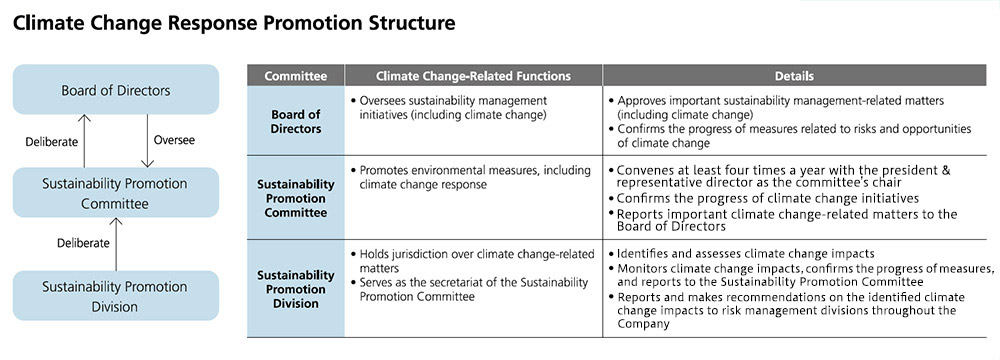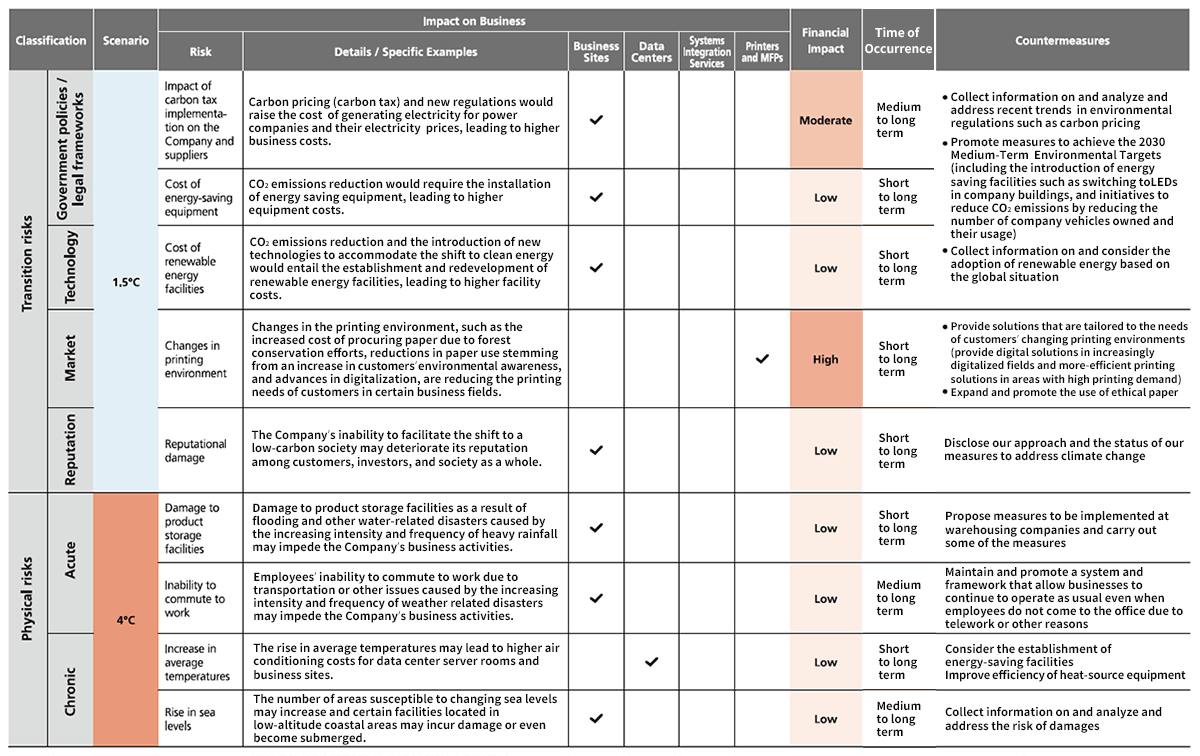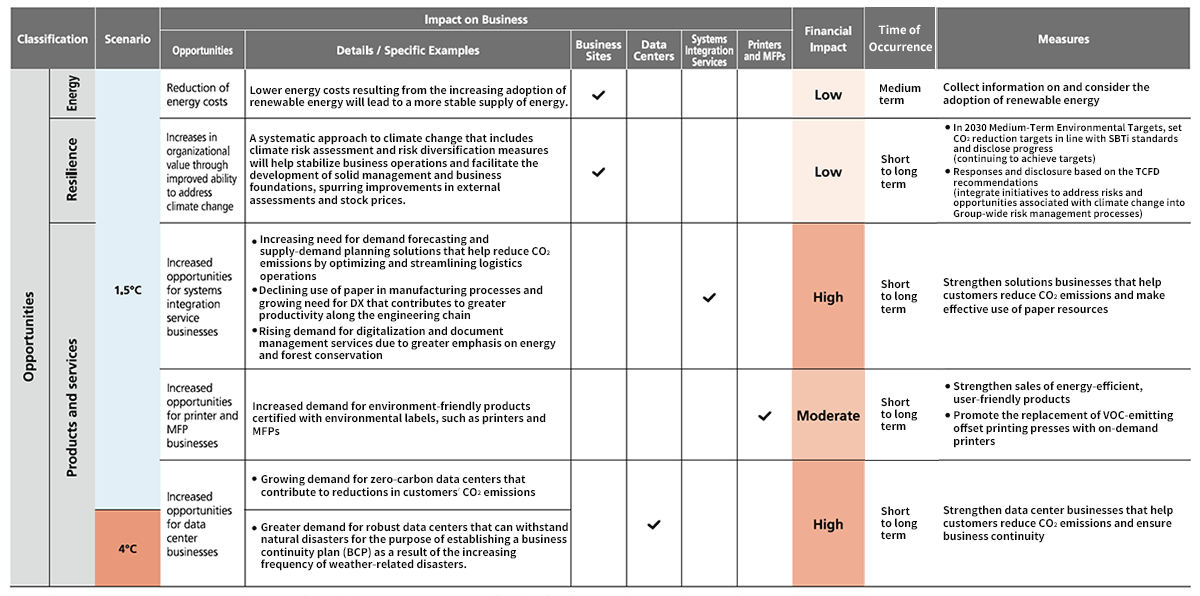Initiatives for TCFD Recommendations
Language switcher
At the Canon Marketing Japan (hereafter, the "Canon MJ"), we endorsed the recommendations of the Task Force on Climate-Related Financial Disclosures (TCFD) and are working on related initiatives.
Governance

Supervisory System of the Board of Directors
The Canon MJ Group has a system in place under which the Board of Directors supervises matters to be discussed and resolved by the Sustainability Promotion Committee, as they are important matters that relate to the core aspects of management and pertain to the entire organization. The Board of Directors receives reports on the risks and opportunities associated with climate change from the Sustainability Promotion Committee at least once a year and monitors and supervises the progress of measures related to such risks and opportunities. In 2024, one report was submitted to the Board of Directors.
Sustainability Promotion Committee
Matters concerning climate change are discussed by the Sustainability Promotion Committee. The president & representative director, who is the chairperson of the committee, assumes overall responsibility for all sustainability-related matters, including climate change. The committee assesses the impact of climate change on our business at least once a year and holds discussions concerning our approach to minimizing the identified risks and seizing opportunities.
Strategy
At the Canon MJ Group, we conduct scenario analyses to identify the various risks and opportunities posed by climate change to our business. We use the Intergovernmental Panel on Climate Changeʼs Representative Concentration Pathway (RCP) scenarios of 1.5°C (RCP 1.9) and 4°C (RCP 8.5) as well as the International Energy Agencyʼs Sustainable Development Scenario (IEA-SDS) for our scenario analyses. We analyze risks and opportunities that are shared throughout the Group, as well as those related to the Groupʼs key businesses that have a significant impact on climate change, and identify when these risks and opportunities are likely to occur over the short, medium, and long term. The content of this analysis is reviewed annually and updated as necessary.


Risk Management
The Sustainability Promotion Division, which oversees matters related to climate change, takes the lead in identifying the risks and opportunities of climate change and assesses the situation in cooperation with the relevant internal divisions of Group companies. The Sustainability Promotion Division also examines responses and countermeasures for each risk and opportunity, which are reported and proposed for deliberation to the Sustainability Promotion Committee. The division also reports and makes recommendations on certain climate change-related impacts and matters to risk management divisions throughout the Company, thereby assuming the role of integrating the impacts of climate change into our Companywide risk management.

Metrics and Targets
In 2022, the Canon MJ Group set the Canon MJ Group Environmental Vision 2050 and the Canon MJ Group 2030 Medium-Term Environmental Targets, the interim targets of this vision*1 . We are aiming to achieve the metric of “Realization of carbon neutrality” under the Canon MJ 2030 Medium-Term Environmental Targets, in line with the SBTi*2 standards. In January 2024, we updated this metric to “Reduce Scope 1 and 2 emissions by 42% by 2030 (from 2022 levels)” and added “Reduce Scope 3 (Category 1, 11) emissions by 25% by 2030 (from 2022 levels)”.
The CO2 emission results for 2024 are shown in the table on the right. Data for Scope 1, 2, and 3 emissions received third-party assurance.
-
*1
Please refer to page 57 for our measures aimed at the realization of carbon neutrality.
-
*2
An abbreviation for Science Based Targets initiative. An international initiative that recommends the setting of GHG emission reduction targets based on scientific evidence
| Metrics | Fiscal 2030 Target | Fiscal 2024 Results | Fiscal 2024 Emissions Results |
|---|---|---|---|
| GHG emissions reduction rate (base year 2022) | Scope 1, Scope 2: 42% reduction | 14.7% reduction | 26,040 t-CO2 |
| Scope 3 (Category 1, 11): 25% reduction | 5.3% reduction | 611,230 t-CO2 |